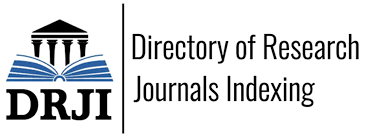Stations (maqamat) and states (ahwal) in the context of humanity studies: dialogical encounter of spirituality and the psychology of religion
DOI:
https://doi.org/10.18326/ijoresh.v2i1.22-42Keywords:
Dialogical encounter, Spirituality, Psychology of religion, Spiritual journey, Stations (maqamat), States (ahwal)Abstract
Grounding on Ian Graeme Barbour’s (1923-2013) typology of relationships between science and religion, this article addresses the issue of the spiritual journey, with special reference to the discourse of stations (maqa>ma>t) and states (ah}wa>l), in the context of humanity study, that is, psychology of religion. According to Barbour, there are four types of relations between science and religion, namely conflict, independence, dialogue, and integration. Following the tendency of the third and the fourth relationships of science and religion, this study argues that there exists a melting point of spirituality, in this regard stations and states of spiritual journey, on the one hand, and psychology of religion, on the other. In this light, this article strengthens the illustrative studies on dialogical encounters between spirituality, in the field of mystical philosophy, and the psychology of religion, in the context of humanity studies.
Downloads
Published
How to Cite
Issue
Section
License
Copyright (c) 2023 IJoReSH: Indonesian Journal of Religion, Spirituality, and Humanity

This work is licensed under a Creative Commons Attribution-ShareAlike 4.0 International License.
Copyright
Authors who publish with Indonesian Journal of Religion, Spirituality, and Humanity agree to the following terms:
- Authors retain copyright and grant the journal right of first publication with the work simultaneously licensed under a Creative Commons Attribution License (CC BY-SA 4.0)that allows others to share the work with an acknowledgement of the work's authorship and initial publication in this journal.
- Authors have the right to enter into separate, additional contractual arrangements for the non-exclusive distribution of the journal's published version of the work (e.g., post it to an institutional repository or publish it in a book), with an acknowledgment of its initial publication in this journal.
- Authors are permitted and encouraged to post their work online (e.g., in institutional repositories or on their website) prior to and during the submission process, as it can lead to productive exchanges, as well as earlier and greater citation of published work.
Licensing
This work is licensed under a Creative Commons Attribution-ShareAlike 4.0 International License.









